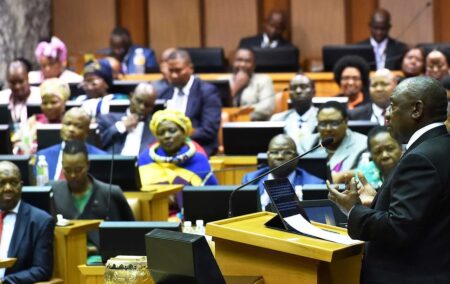Government regulation is really just an appropriation of citizens’ rights.
I can sum up the case for all government regulation in one sentence: Individuals act in their own self-interest, which sometimes runs counter to the self-interest of other individuals. This is true, but it also happens to be the reason why the regulation itself is a bad idea.
Regulation involves appropriating from individuals the power to make decisions over their property, diminishing their ability to sign contracts and handing these over to others who happen to belong to an organisation that calls itself the government. This means that the potential of the individual to harm others has not been neutralised so much as handed over to other similarly flawed individuals.
Of course, reasons are always given, either explicitly or implicitly, for why this second group should make better decisions with the power they have been given than the person who originally possessed that power. Usually, democratic accountability, laws, the judiciary and so on are mentioned.
In South Africa we have seen what democratic accountability means in practice: politicians do what they like and voters reward them for this because the politician is seen as ‘their guy’. It was true in the case of apartheid when the majority of the white people who could vote endorsed stripping fellow citizens of their rights, and their property. It is true now when a majority of a non-racial electorate keeps voting for the wholesale looting from a tiny base of productive individuals.
What of the law enforcers and the judiciary, the rest of the state institutions? All you need to do is buy the right people and your problems are solved. Through regulations and taxation, the power over all productive activity in the country as well as all property has been transferred from the millions of individuals to which it rightfully belongs to a handful of people, numbering in the thousands at most, and this has made the job of the cunning politician that much simpler.
Imagine a Pravin Gordhan in 2009 having to go cap in hand to everyone in the country – some 7 million or so – earning an income and running a business, to ask for the R835 billion in proposed expenditure. (As an aside, Mr Gordhan was predicting a budget deficit of -7.3% of GDP, while Mr Manuel in his last budget speech had proposed a budget surplus of 0.8%).
Instead, all he had to do was get the approval of 201 members of the national assembly, voted in by 8 840 365 people constituting a set that is almost entirely different from the one from which the aforementioned 7 million taxpayers are drawn.
That is what democratic accountability means in practice; a group of people who couldn’t be bothered to care what politicians do after they get elected, voting for a group of people who don’t care what the voters have to suffer after elections, in order for those few to gain the power to decide how a third group use their property. It would be amazing if corruption didn’t occur under these circumstances. As for the other state institutions, they depend on the largesse of the elected group for their very existence.
The problems with taxation are exactly the same problems inherent in regulations. Both processes involve the transfer either of physical property or of control over it to politicians, individuals who are as flawed as any of us, regardless of what their rhetoric implies.
You would think a country that has undergone as much historical trauma as this one would be more careful. It seems further lessons are needed.
I make the last point because, as we speak, the State is in the process of handing itself the power to confiscate any and all property virtually without any constraint. Instead of taking a percentage of income here and a share of some dead person’s estate there, the few individuals making up the State will have the awesome power to seize anything any person owns without having to go through the trouble of raising the taxes (another form of seizure, though there are some constraints as government is finding out).
In practice, we will still have other protections from the government, but history shows that this ultimate power (expropriation without compensation) is an effective means of quelling any and all dissent.
When there’s no longer any private platform for free speech, when opponents can lose everything they have for saying things politicians don’t like, when judges are dependent on the government of the day for what they own, their very livelihoods, then, maybe, we will understand that there is nothing special about politicians.
Then, perhaps, we will see they are the same greedy, selfish people whose power we were so afraid of when it was distributed among millions instead of being concentrated in their few hands.
If you like what you have just read, become a Friend of the IRR if you aren’t already one by SMSing your name to 32823 or clicking here. Each SMS costs R1.’ Terms & Conditions Apply.

